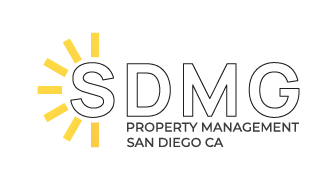The Purpose of Real Estate Licensing and Property Management Fees
In the competitive field of property management, understanding the intricacies of licensing and fees is crucial for both property managers and property owners. This article delves into the necessity of real estate licenses for property managers and explores the components of property management fees, aiming to equip readers with comprehensive knowledge to navigate these aspects effectively.
Do Property Managers Need a Real Estate License?
A real estate license is a professional credential that authorizes individuals to engage in real estate transactions legally. It signifies expertise in navigating the complexities of buying, selling, renting, and managing properties. While not every state mandates property managers to possess a real estate license, its importance cannot be overstated. A license demonstrates a commitment to professionalism, ethical standards, and a deep understanding of the laws governing real estate.
Why Is a Real Estate License Necessary for Property Managers?
The primary reasons for obtaining a real estate license include:
- Legal Compliance: Ensures adherence to local, state, and federal regulations governing property management.
- Professionalism: Enhances credibility and trust among clients.
- Access to Resources: Provides access to industry-specific tools, networks, and continuing education opportunities.
Obtaining a Real Estate License as a Property Manager
To become a licensed property manager, one typically needs to meet educational and examination requirements set forth by their state’s real estate commission. These may include completing pre-licensing courses, passing a written exam, and undergoing background checks.
Benefits of Having a Real Estate License
Holding a real estate license offers several advantages, including:
- Expanded Opportunities: Access to a broader range of services and clients.
- Increased Earnings Potential: Higher earning capacity due to increased job security and marketability.
- Continued Learning: Ongoing education requirements keep skills sharp and abreast of industry changes.
What is Included in Property Management Fee?
Property management fees encompass various services aimed at maximizing property value and owner satisfaction. These services may include:
- Tenant Screening: Background checks and credit reports.
- Lease Preparation and Renewal: Drafting and negotiating lease agreements.
- Maintenance Coordination: Overseeing repairs and regular property upkeep.
- Rent Collection: Handling rent payments and addressing late fees.
- Eviction Process: Managing the eviction process if necessary.
Additional fees beyond the base property management fee might include advertising costs, special projects, or emergency repairs. The calculation of the property management fee varies but often includes a percentage of the rental income collected.
Negotiating Property Management Fees
Property management fees are negotiable and can vary based on the scope of services required, the complexity of the property, and the market rates in the area. It’s essential for property owners to discuss and agree upon the terms upfront to avoid misunderstandings later.
Learning the purpose and role of real estate licensing in property management and being informed about property management fees are critical steps for anyone involved in the rental property business. Whether you’re a property manager looking to enhance your career or a property owner seeking to optimize your investment, staying educated on these topics will empower you to make informed decisions and navigate the real estate landscape with confidence.
